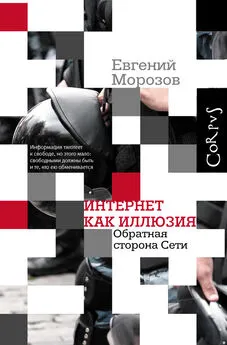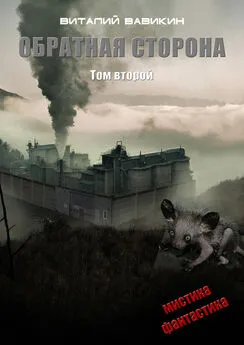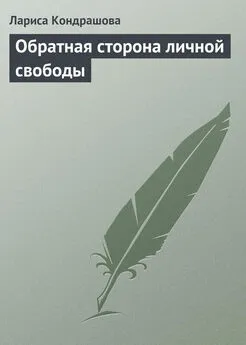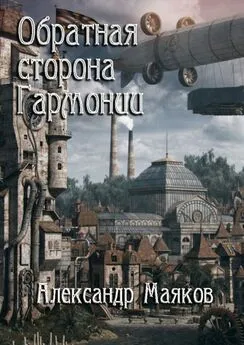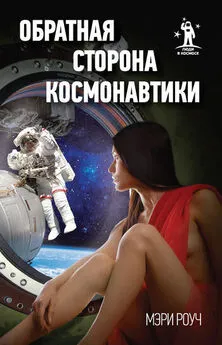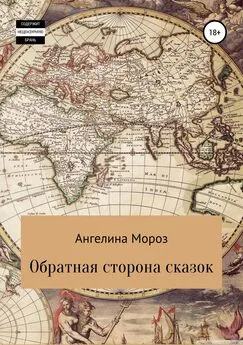Евгений Морозов - Интернет как иллюзия. Обратная сторона сети
- Название:Интернет как иллюзия. Обратная сторона сети
- Автор:
- Жанр:
- Издательство:Array Литагент «Corpus»
- Год:2014
- Город:Москва
- ISBN:978-5-17-084792-1
- Рейтинг:
- Избранное:Добавить в избранное
-
Отзывы:
-
Ваша оценка:
Евгений Морозов - Интернет как иллюзия. Обратная сторона сети краткое содержание
Интернет как иллюзия. Обратная сторона сети - читать онлайн бесплатно полную версию (весь текст целиком)
Интервал:
Закладка:
Наконец, я хотел бы поблагодарить Арно ван Линдена, который вдохновил меня на сочинение книги, научил меня ставить непростые вопросы, а также, будучи выдающимся военным корреспондентом, показал, что такое мужество и порядочность. Мне выпало счастье быть его учеником и иногда беседовать с ним о политике за бокалом вина. Роль этого человека в моем интеллектуальном развитии колоссальна, и я с огромным удовольствием посвящаю ему эту книгу.
Сан-Франциско, 30 августа 2010 года
Библиография
Беспорядки в Иране шли по молдавскому сценарию – США пропалились // Evrazia.org, 18 июня 2009 года. evrazia.org/news/8648.
Госдеп США позаботился об иранских студентах // Новости НТВ, 17 июня 2009 года. www.ntv.ru/novosti/165016/.
Мариан, Б. Sorry Молдова! // Независимая Молдова, 3 июля 2009 года. http://www.nm.md/article/sorry-moldova.
Abadi, C. Iran, Facebook, and the Limits of Online Activism // Fo-reign Policy, February 12, 2010.
Alexiou, P. A “Twitter Moment” in Politics? // Voice of America, July 29, 2010.
A Look at Twitter in Iran // Sysomos Blog, June 21, 2009. blog.sysomos.com/2009/06/21/a-look-at-twitter-in-iran/.
Ambinder, M. The Revolution Will Be Twittered // Marc Ambinder’s
Politics Blog, September 15, 2009. www.theatlantic.com/politics/ archive/2009/06/the-revolution-will-be-twittered/19376/.
Anderson, C. Q&A with Clay Shirky on Twitter and Iran // TED
Blog. blog.ted.com/2009/06/qa_with_clay_sh.php.
Athanasiadis, I. Iran Uses Internet as Tool Against Protesters //
Christian Science Monitor, January 4, 2010.
Bajkowski, J. Al Jazeera Offers Reality Check for the Twitterverse //
MIS Australia.com, February 22, 2010. www.misaustralia.com/ viewer.aspx?EDP://1266801386432.
Berkeley, B. Bloggers vs. Mullahs: How the Internet Roils Iran // World Policy Journal 23, no. 1 (2006): 71.
Best, M. L., and K. W. Wade The Internet and Democracy: Global Catalyst or Democratic Dud? // Bulletin of Science, Technology & Society 30, no. 3 (June 2009).
Bozorgmehr, N. Tehran Calls for Informants on Protesters // Finan-cial Times, January 5, 2010.
Chat Rooms and Chadors // Newsweek, August 21, 1995.
China Group: Facebook Used to Sow Unrest // Associated Press, July 9, 2010.
China Military Paper Issues Warning over Twitter, YouTube “Subversion” // BBC Monitoring Media, August 7, 2009.
China News Agency Views Twitter’s Role in Iran Political Crisis // BBC Monitoring Media, June 30, 2009.
The Clinton Internet Doctrine // Wall Street Journal, January 23, 2010. CNN Responds to Iranian Hacking Accusation // CNN.com, June 22,
2009. edition.cnn.com/2009/WORLD/meast/06/22/cnn.iran.claim/ . Communicators with Alec Ross // C-SPAN, April 14, 2010. www.c-span-video.org/program/293002–1.
Communicators with Tim Sparapani // C-SPAN, March 8, 2010. www. c-spanvideo.org/program/292422–1.
Dabashi, H. A Tale of Two Cities // Al-Ahram Weekly, August 20, 2009. weekly.ahram.org.eg/2009/961/op51.htm.
Dickie, M. China Traps Online Dissent // Financial Times, Novem-ber 12, 2007.
Don’t Be Evil // New Republic, April 21, 2010.
Eltahawy, M. Facebook, YouTube and Twitter Are the New Tools of
Protest in the Arab World // Washington Post, August 7, 2010. Esfandiari, G. Authorities Warn Iranians Not to Protest // Transmis-sion Blog (RFE/RL), November 20, 2009. www.rferl.org/content/ Authorities_Warn_Iranians_Not_To_Protest_By_SMS/1883679. html.
Esfandiari, G. Iranian Social Networking, Hard-Line Style // Radio Free Europe/Radio Liberty, July 28, 2010.
Esfandiari, G. The Twitter Devolution // Foreign Policy, June 7, 2010. Esfandiari, G. Why Did Iran Unblock Facebook? // Radio Free
Europe/Radio Liberty, March 14, 2009.
Fassihi, Farnaz Iranian Crackdown Goes Global // Wall Street Journal, December 3, 2009.
Fax Against Fictions // Time, June 19, 1989.
Fresh Iran Hearing Focuses on “Internet Plot” // Press TV, September 14, 2009.
Fukuyama, F. The End of History and the Last Man . New York: Free Press, 2006.
Gapper, J. Technology Is a Tool for Revolution (and Repression) // Financial Times, June 20, 2009.
Gheytanchi, E., and B. Rahimi The Politics of Facebook in Iran // openDemocracy, June 1, 2009. www.opendemocracy.net/article/ email/ the-politics-of-facebook-in-iran.
Giroux, H. A. The Iranian Uprisings and the Challenge of the New Media: Rethinking the Politics of Representation // Fast Capitalism 5, no. 2 (2009).
Google Calls an End to Business as Usual in China // Age (Melbourne), January 18, 2010.
Gross, D. Awards Honor Top 10 Internet Moments of the Decade // CNN.com, November 19, 2009. cnn.com/2009/TECH/11/18/top. internet.moments/.
Hornby, L. China Paper Slams U. S. for Cyber Role in Iran Unrest // Reuters, January 24, 2010.
Houghton, D. P. The Role of Self-Fulfilling and Self-Negating Pro-phecies in International Relations // International Studies Review 11, no. 3 (2009): 552–584.
Internet “in Running” for Nobel Peace Prize // BBC News, March 10, 2010. Iran Hacked Twitter’s Database and Arrested Its Users // BBC Monitoring Media, January 17, 2010.
Iran Police Say Public Help in Arresting Rioters // Reuters, January 19, 2010.
Iran’s Police Vow No Tolerance Towards Protesters // Reuters, February 6, 2010.
Johnson, A. R. A Brief History of RFE/RL // Radio Free Europe/ Radio Liberty, December 2008.
Johnston, N. Twitter Gets Serious // Baltimore Sun, June 20, 2009. Kalathil, S., and C. B. Taylor Open Networks, Closed Regimes:
The Impact of the Internet on Authoritarian Rule . Washington, DC: Carnegie Endowment for International Peace, 2003.
Kaminsky, R. Iran’s Twitter Revolution // Human Events, June 18, 2009. Keohane, R. O., and J. S. Nye, Jr. Power and Interdependence in the Information Age // Foreign Affairs 77, no. 5 (1998): 81–94.
Kerry, J. Standing up for Internet Freedom // TPMCafe, Talking Points Memo, January 21, 2010. tpmcafe.talkingpointsmemo.com/ 2010/01/21/standing_up_for_internet_freedom/index.php.
Khiabany, G., and A. Sreberny The Politics of/in Blogging in Iran // Comparative Studies of South Asia, Africa and the Middle East 27, no. 3 (2007): 563.
Kimmage, D. Fight Terror with YouTube // New York Times, June 26, 2008.
Kirkpatrick, D. The Facebook Effect: The Inside Story of the Com-pany That Is Connecting the World . New York: Simon & Schuster, 2010.
Kristof, N. D. Tear Down This Cyberwall! // New York Times, June 17, 2009.
Krugman, P. Understanding Globalization // Washington Monthly, June 1999.
Lakshmanan, I. A. R. Supporting Dissent with Technology // New York Times, February 23, 2010.
Landler, M. Google Searches for a Foreign Policy // New York Times, March 28, 2010.
Landler, M., and B. Stelter Washington Taps into a Potent New Force in Diplomacy // New York Times, June 16, 2009.
Last, J. V. Tweeting While Tehran Burns // Weekly Standard, Au-gust 17, 2009.
Lee, T. The Cost of Hashtag Revolution // American Prospect, 2009, June 29.
McMillan, R. In Iran, Cyber-Activism Without the Middle-Man // Computer World, June 18, 2009.
Meet the Press . Transcript // MSNBC, May 23, 2010. Mungiu-Pippidi, A., and I. Munteanu Moldova’s “Twitter
Revolution” // Journal of Democracy 20, no. 3 (2009): 136–142. Musgrove, M. Twitter Is a Player in Iran’s Drama // Washington
Post, June 17, 2009.
News Roundup: Hour 2 // The Diane Rehm Show, WAMU, June 19, 2009. Pfeifle, M. A Nobel Peace Prize for Twitter? // Christian Science
Monitor, July 6, 2009.
Quinn, J. Iran Shuts Down Google Mail // Daily Telegraph, Febru-ary 10, 2010.
Revolutionbook // Financial Times, May 27, 2009.
Rhoads, C. Activists Skirt Web Crackdown to Reach the Outside World // Wall Street Journal, December 8, 2009.
Rutten, T. Tyranny’s New Nightmare: Twitter // Los Angeles Times, June 24, 2009.
Schleifer, Y. Why Iran’s Twitter Revolution Is Unique // Christian Science Monitor, June 19, 2009.
Schorr, D. In Iran, a Struggle over Cyberspace // All Things Consi-dered. National Public Radio, June 17, 2009.
Sheridan, B. The Internet Helps Build Democracies // Newsweek, April 30, 2010.
Shirk, S. L. Changing Media, Changing Foreign Policy in China //
Japanese Journal of Political Science 8, no. 1 (2007): 43–70. Sohrabi-Haghighat, M. H., and S. Mansouri “Where’s My
Vote?” ICT Politics in the Aftermath of Iran’s Presidential Election // International Journal of Emerging Technologies and Society 8, no. 1 (2010): 24–41.
Sreberny, A., and G. Khiabany Becoming Intellectual: The Bloge-stan and Public Political Space in the Islamic Republic // British Jour-nal of Middle Eastern Studies 34, no. 3 (2007): 267–286.
State Department Is Taking Right Steps to Foster Internet Freedom // Washington Post, July 21, 2010.
Stone, B., and N. Cohen Tweeting Their Way to Freedom? // New York Times, October 5, 2009.
Sullivan, A. The Revolution Will Be Twittered // Atlantic, June 13, 2009. andrewsullivan.theatlantic.com/the_daily_dish/2009/06/the-revo-lution-will-be-twittered-1.html.
Sullivan, A. Twitter Maintenance? // Atlantic, June 15, 2009. an-drewsullivan.theatlantic.com/the_daily_dish/2009/06/twitter-maintenance.html.
Tait, R. Iran Moves to Silence Opposition with Internet Crime Unit // Guardian, November 15, 2009.
Tehran Clashes Reported on Iran Vote Anniversary // BBC News, June 12, 2010.
Tehrani, H. Iranian Officials “Crowd-Source” Protester Identities // Global Voices, June 27, 2009. globalvoicesonline.org/2009/06/27/ iranian-officials-crowd-source-protester-identities-online/.
Viner, K. Internet Has Changed Foreign Policy for Ever, Says Gordon Brown // Guardian, June 19, 2009.
Weaver, M. Iran’s “Twitter Revolution” Was Exaggerated, Says Editor // Guardian, June 9, 2010.
Weaver, M. Oxfordgirl vs Ahmadinejad: the Twitter User Taking on the Iranian Regime // Guardian, February 10, 2010.
Webster, G. Street in Palestinian Refugee Camp Named After Twitter Account // CNN.com, October 5, 2009. edition.cnn.com/2009/ WORLD/meast/10/01/twitter.street/index.html.
Weisberg, J. Publishers Should Beware Apple’s iPad // Newsweek, May 15, 2010.
Читать дальшеИнтервал:
Закладка:
